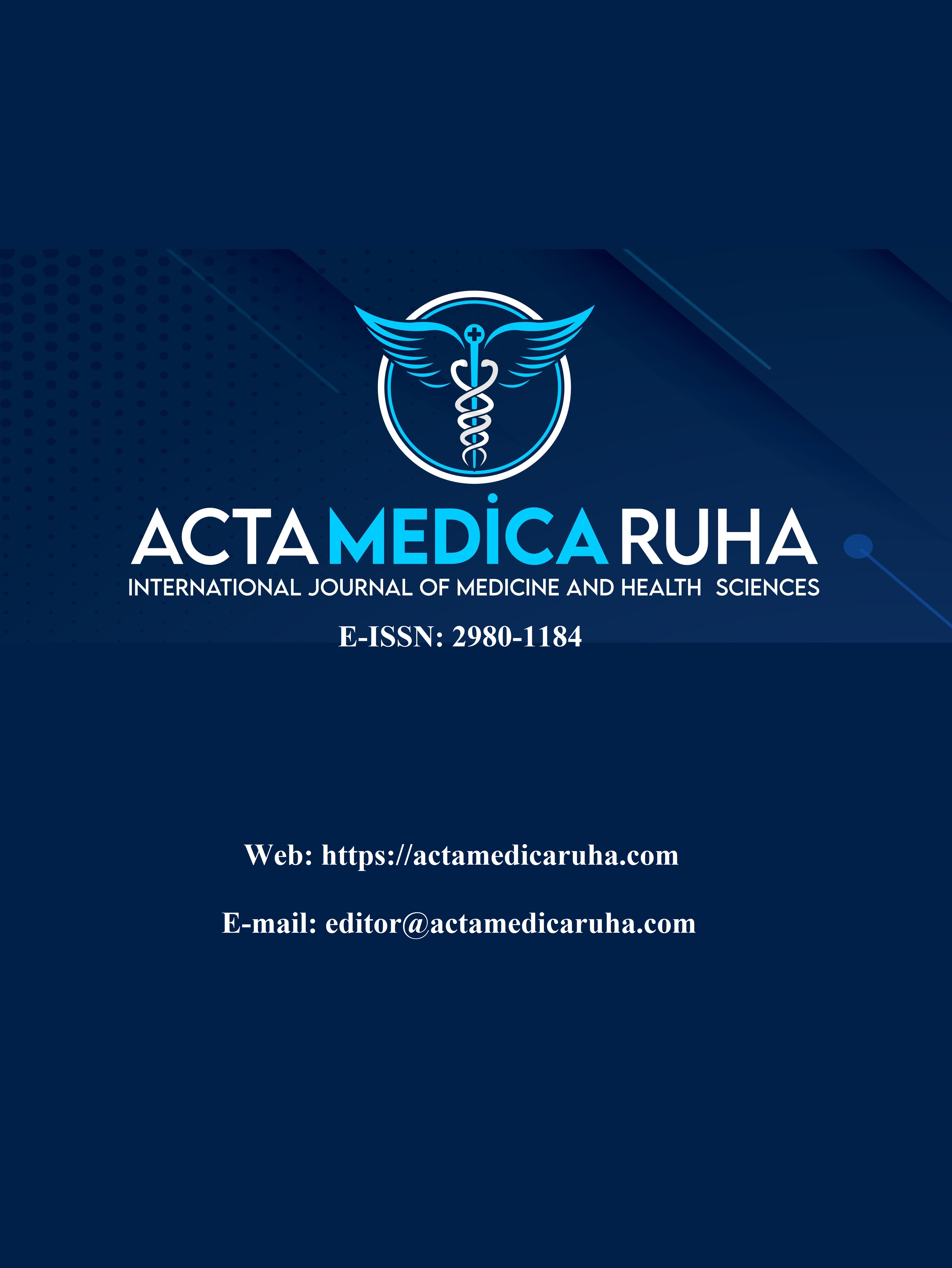Postpartum Depresyon İnsidansı Ve Etkileyen Faktörler: Türkiye'den Kohort Bir Çalışma
Araştırma Makalesi
DOI:
https://doi.org/10.5281/zenodo.11373938Anahtar Kelimeler:
Kadın, Gebelik, Postpartum Depresyon, Postpartum Depresyon Risk Faktörleri, Kohort ÇalışmaÖzet
Amaç: Perinatal dönemde sık görülen ruhsal sorunlardan biri olan postpartum depresyon, erken dönemde tanı konulması ve müdahale edilmesi gereken önemli bir halk sağlığı sorunudur. Bu çalışmada postpartum depresyonun görülme sıklığı ve etkileyen faktörlerin belirlenmesi amaçlanmıştır.
Yöntem: Çalışma kohort tipindedir. Veriler Kişisel Bilgi Formu, Çok Boyutlu Algılanan Sosyal Destek Ölçeği (ÇBASDÖ), Durumluk Kaygı Envanteri (DKE)/Sürekli Kaygı Envanteri (SKE) ve Edinburg Postpartum Depresyon Ölçeği (EPDÖ) kullanılarak toplanmıştır.
Bulgular: Kadınlarda doğum sonrası depresyon görülme sıklığı %13,5'tir. MSPSS ve TAI puanları düşük olanlarda ve bebeğin evliliklerini olumsuz etkilediğini düşünenlerde doğum sonrası depresyon düzeyi daha yüksektir (p<0.05). Ancak bebeğin evliliği olumsuz etkilemesi doğum sonrası depresyon riskini 5,3 kat artıran en önemli faktördür.
Sonuç: Çalışma, doğum sonrası depresyonun anneler arasında hala yaygın bir sorun olduğunu ve bebeğin evlilik üzerindeki olumsuz etkisinin doğum sonrası depresyon insidansını artıran önemli bir faktör olduğunu ortaya koymuştur. Doğum sonrası depresyonu önlemek için ebeveynlere yönelik eş-ebeveyn uyum destek programlarının uygulanması önerilmektedir.
Referanslar
World Health Organization. WHO guideline for the integration of perinatal mental health into maternal and child health services (2022). https://www.who.int/publications/i/item/9789240057142 (Accessed on October 8, 2023).
Hahn-Holbrook J, Cornwell-Hinrichs T, Anaya I. Economic and health predictors of national postpartum depression prevalence: a systematic review, meta-analysis, and meta-regression of 291 studies from 56 countries. Front Psychiatry. 2018;8:248.
American Psychiatric Association. Diagnostic and Statistical Manual of Mental Disorders DSM-5. Washington, DC: American Psychiatric Publishing; 2013.
Alshikh Ahmad H, Alkhatib A, Luo J. Prevalence and risk factors of postpartum depression in the Middle East: a systematic review and meta-analysis. BMC Pregnancy Childbirth. 2021;21(1):1-12.
Karaçam Z, Çoban A, Akbaş B, Karabulut E. Status of postpartum depression in Turkey: A meta-analysis. Healthcare for Women International. 2018;39(7):821-841.
Goweda R, Metwally T. Prevalence and associated risk factors of postpartum depression: a cross sectional study. Archives of Clinical Psychiatry (São Paulo). 2020;47:106-109.
Al Dasoqi KY, Malak MZ, Alhadidi M, Subih MM, Safadi R. Postpartum depression among first-time Jordanian mothers: levels and associated factors. Psychology, Health & Medicine. 2023;28(6):1527-1539.
Della Corte L, La Rosa VL, Cassinese E, et al. Prevalence and associated psychological risk factors of postpartum depression: a cross-sectional study. Journal of Obstetrics and Gynaecology. 2022;42(5):976-980.
Arante FO, Tabb KM, Wang Y, Faisal-Cury A. The relationship between postpartum depression and lower maternal confidence in mothers with a history of depression during pregnancy. Psychiatric Quarterly. 2020;91:21-30.
Xiong R, Deng A. Prevalence and associated factors of postpartum depression among immigrant women in Guangzhou, China. BMC Pregnancy Childbirth. 2020;20(1):1-7.
Inthaphatha S, Yamamoto E, Louangpradith V, et al. Factors associated with postpartum depression among women in Vientiane Capital, Lao People’s Democratic Republic: A cross-sectional study. PLoS One. 2020;15(12):e0243463.
Gelaye B, Rondon MB, Araya R, Williams MA. Epidemiology of maternal depression, risk factors, and child outcomes in low-income and middle-income countries. The Lancet Psychiatry. 2016;3(10):973-982.
Eker D. Factor structure, validity and reliability of the revised form of the multidimensional perceived social support scale. Turkish Journal of Psychiatry. 2001;12:17-25.
Öner NLC A, Le Compte A. State-trait anxiety inventory manual. Istanbul: Bogazici University Printing House; 1983.
Engindeniz AN, Küey L, Kültür S. Turkish version of the Edinburgh Postpartum Depression Scale: Reliability and validity study. In Article in Turkish. Spring Symposiums I Book: Psychiatric Organization of Turkey. 1996;51-2.
Özcan NK, Boyacıoğlu NE, Dinç H. Postpartum depression prevalence and risk factors in Turkey: a systematic review and meta-analysis. Archives of Psychiatric Nursing. 2017;31(4):420-428.
Durukan E, İlhan MN, Bumin MA, Aycan S. Frequency of postpartum depression and quality of life in mothers with babies aged 2 weeks to 18 months. Balkan Medical Journal. 2011;(4):385-393.
Slomian J, Honvo G, Emonts P, Reginster JY, Bruyère O. Consequences of maternal postpartum depression: A systematic review of maternal and infant outcomes. Women's Health. 2019;15:1-55.
Ramos KC, Konopka CK, Costa AG, et al. Risk factors associated with postpartum depression in a high-risk maternity clinic: a cross-sectional study. Minerva Obstetrics and Gynecology. 2023;75(1):7-17.
Alzahrani J, Al-Ghamdi S, Aldossari K, et al. Postpartum depression prevalence and associated factors: an observational study in Saudi Arabia. Medicina. 2022;58(11):1595.
Elmagd MH, Albokhary AA. Postpartum Depression and its relation to social support and marital satisfaction. Development. 2021;15:16.
Shang X, Li L, Niu C, Liao Y, Gao S. Relationship between social support and parenting sense of competence in puerperal women: Multiple mediators of resilience and postpartum depression. Frontiers in Psychiatry. 2022;13:986797.
Çankaya S, Alan Dikmen H. The effects of family function, relationship satisfaction, and dyadic adjustment on postpartum depression. Perspectives in Psychiatric Care. 2022;58(4).
Keles E, Bilge Y, Kumru P, Celik Z, Cokeliler I. Association between perceived social support, marital satisfaction, differentiation of self and perinatal depression. Northern Clinics of Istanbul. 2023;10(2):181-188.
Wedajo LF, Alemu SS, Jarso MH, Golge AM, Dirirsa DE. Late postpartum depression and associated factors: community-based cross-sectional study. BMC Women's Health. 2023;23(1):280.
İndir
Yayınlanmış
Nasıl Atıf Yapılır
Sayı
Bölüm
Lisans
Telif Hakkı (c) 2024 Acta Medica Ruha

Bu çalışma Creative Commons Attribution 4.0 International License ile lisanslanmıştır.









